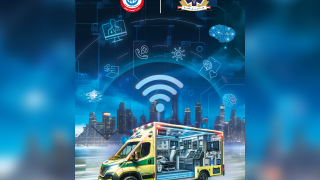How is the rise of business segments such as the internet of things changing the shape of the IP exchange market?
The first impact on IPX is that we see growth in traffic, with an increasing number of devices in a permanent roaming situation. This is because many IoT devices are equipped with one SIM card at the manufacturing plant and are then shipped to different countries. These devices are not just in a holiday context for a week, but in a roaming situation 365 days a year – even if many of them only occasionally send and receive small amounts of data.
The second impact is that we increasingly see that one-IPX-fits-all is not the way to go any longer. We see more and more specific requirements coming from IoT, so there is a need to treat and process this traffic differently to traditional human-generated roaming traffic. At Deutsche Telekom ICSS, we are constantly adapting by building a more specific IPX IoT layer.
What approach are you taking to doing this, and what kinds of traffic do you need to treat differently?
There are certain use cases where a local breakout of traffic is needed, rather than being home-routed as with traditional roaming. As one example, there are countries where regulation states that some kinds of map data for navigation are not allowed to leave the country. There are also cases where it’s important that the content is close to the user to avoid a high level of latency.
Finally, as retail tariffs are accommodating much more usage, it is important to start thinking from a network-design point of view about what traffic actually makes sense to travel back and forth between the home and visited network.
How has the roam-like-at-home regulation introduced in the EU last June impacted on the IPX market?
It’s made things very busy. We knew that there would be traffic growth, but nobody knew exactly how much. At Deutsche Telekom ICSS, we increased our IPX capacity dramatically to prepare for this. For example, we upgraded our IPX ports at AMS-IX (the Amsterdam Internet Exchange) to 100Gbps, becoming the first to do that. Shortly after, we upgraded several customers and peering interconnections to 100Gbps infrastructure. As it turned out, we saw that data roaming traffic in summer 2017 exploded compared to the previous year.
A big chunk of traffic that’s driving volumes is from video. For example,
I never used to use Netflix abroad other than on WiFi, because it would have just consumed so much data and cost me loads. But now with roam-like-at-home, I’m sometimes in a hotel and I use Netflix and YouTube, and there’s no bill shock.
I’m sure that more and more people will lose their bill shock fear when abroad. Once again, we want to be prepared. Along with continuous capacity upgrades, we are already working on the next step-change as well, which will include upgrading some customer connections to multiple 100Gbps technology.
How would you say Deutsche Telekom ICSS is ahead of the game with IPX?
We’re a really big global player in IoT and are well-positioned there. We have a lot of internal demand and we work together with our Deutsche Telekom IoT team to make sure roaming works from the beginning.
I would also say that we’re a leader in security. We have launched an SS7 firewall with which we protect mobile networks against security threats, and have an SMS firewall that helps to do away with grey route traffic.
Finally, 5G is coming up. Deutsche Telekom has been among the first players worldwide to run networks in selected cities, and we are actively driving 5G standardisation. Our IPX will be there to enable 5G interconnectivity in a new way.
What are the main challenges in terms of innovating and upgrading the IPX platform to support all the new services?
Basically, I would say there’s just so much to do. Volumes are constantly going up, so we need to work with our vendors and integrate new technology. The IPX network has graduated from being a niche network. Now it turns into a large, robust and secure dedicated network “highway” to connect all kinds of mobile ecosystems. In line with this trend, we are digitalising our processes even more. We also need to cope with a wide variety of services, adapting more to the IoT world and to areas such as rich communications services (RCS). The application-to-person (A2P) business is now very interested in RCS. I am excited about this new momentum, as IPX can be the enabler here once again.
How do you see the future for IPX?
IPX is being used for more and more services. This universality is what operators appreciate so much. There is quality-of-service and security, which is of growing importance. I think IPX has a good future, provided that it adapts. The situation of our customers is evolving every day and if we find answers to these new requirements, then IPX has a really bright future.




